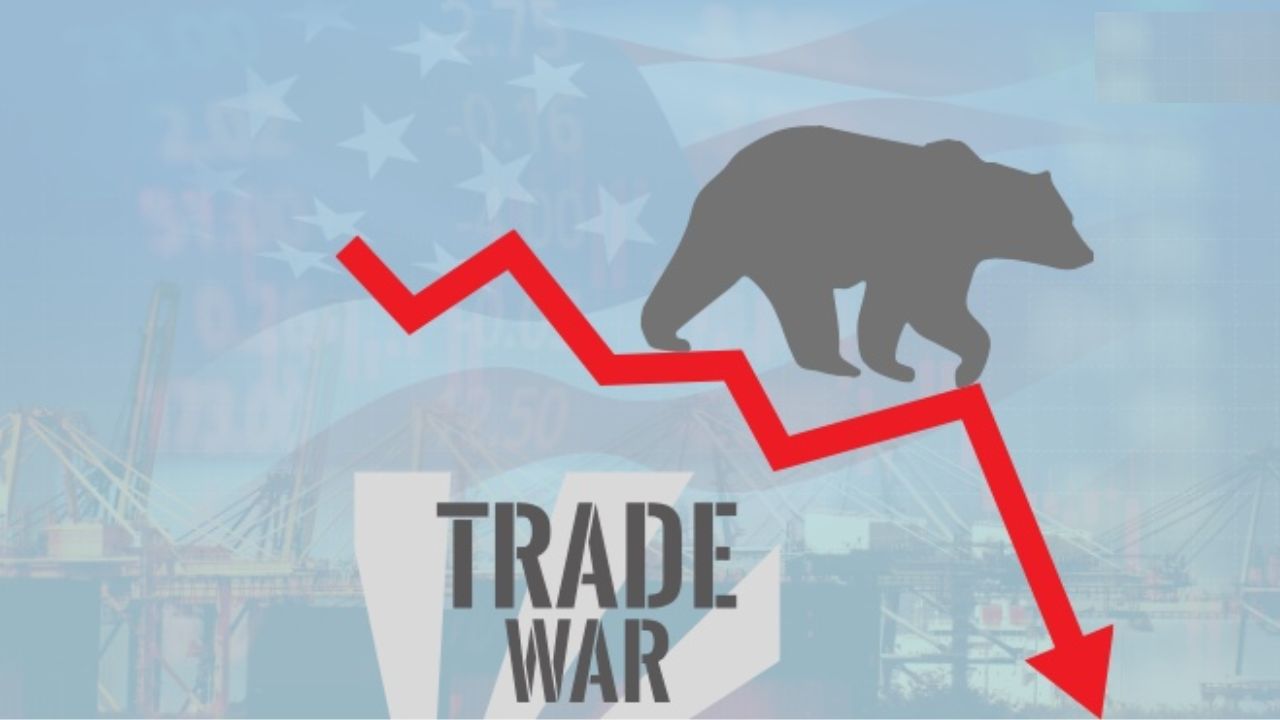Trump Trade War: US Stock Market Loses $4 Trillion In Value By March 2025
The U.S. stock market lost $4 trillion from its market value by March 2025 due to direct actions from former President Donald Trump. These economic results highlight the harm caused by extended trade wars with unstable business practices.
The Birth Of The Trade War
President Trump started trade conflicts in 2018 by imposing tariffs primarily on Chinese imports to reduce trade deficits and revive US manufacturing.
The government applied large import taxes that forced other trading nations to react with equal measures. The trade dispute ran repeatedly for years until it made the global economy unfixable.
Market Reactions And Investor Sentiment
The long-term length of the trade war determined how severely it affected the stock market. An early spike in market instability pushed investors toward caution, and they began experiencing more downside movements. Between late 2023 and early 2025, stock markets lost 10% worth, which generated a $4 trillion decrease in total market value.
Investors became cautious about market participation because they expected better recovery prospects before the trade war resumed. Market players feared reduced income prospects from tariff and trade rules changes, so they moved stock prices downward into reduced value ranges.
Major economic experts and stock market specialists predict the prolonged trade fight will slow economic growth and shake markets unless endpoints exist.
The Impact On Key Sectors
The trade war created unpredictable changes that affected different parts of the economy selectively. The imposition of tariffs caused manufacturing together with agriculture to suffer major challenges through reduced profit margins and higher product costs.
The operational difficulties affecting companies that depend on worldwide supply networks resulted in reduced manufacturing activities and employee dismissals. Small to medium-sized businesses endure the most damage because they lack sufficient financial means to endure enduring economic downturns.
Although the technology sector and healthcare fields remained untouched by immediate trade conflicts, business uncertainty restrained both innovation development and investment activities. Panies started to evaluate their supply networks for places without significant tariff exposure, thus deepening their financial challenges.
Government Intervention And Recovery Efforts
The Biden administration reacted to market collapse and economic struggle by creating stabilizing economic policies while trying to calm investors’ concerns. The Federal Reserve put forward monetary policy decisions with interest rate reductions as part of its plan to initiate economic development.
The administration initiated fresh attempts at trade negotiation and stabilization of Chinese relations because they wanted peaceful resolutions beyond their previous confrontational stance.
Investors maintain caution because the speed and strength of market recovery depend heavily on the continued outcomes of present negotiations. Economic experts agree that both incomplete deal resolutions and new trade conflicts would magnify market weaknesses into a terrifying scenario.
Public Reaction To Economic Turmoil
When the market reveals declining values, the general population demonstrates their worries about growing economic differences and their fear of job loss. American citizens express rising resentment due to government progress limitations and business-sector privileges that seem to surpass citizen welfare.
Economic problem-solving activities are now being organized in many towns and communities to find effective support measures for struggling workers and industries.
Activists, together with economists, both agree on the immediate need for relief measures, fair trade support, and domestic industry reconstruction to create an economic recovery.
The rising demand for accountability causes political representatives to face stronger pressure to implement decisive measures.
The U.S. stock market experienced the biggest financial loss, amounting to $4 trillion, because of the Trump trade war through March 2025. Trade policy and market confidence unite to determine the economic stability through this situation. The nation must resolve its underlying economic issues together with devising solutions because a lack of resolution would make it impossible to restore investor confidence and achieve financial stability.
The United States will need lessons from previous challenges to develop strength as it continues to face unfamiliar economic conditions.

